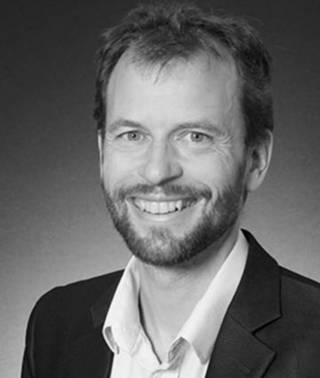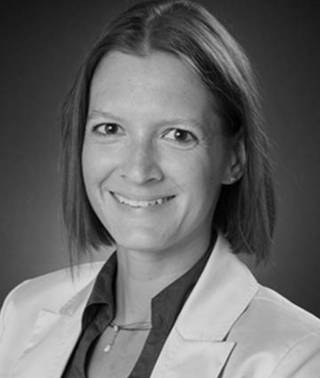Degree programme at a glance
Tourism is changing
- new digital technologies change how we dream, plan, book, experience our holidays and how we share these experiences.
- concerns over climate change and sustainability and the Covid-19 pandemic make us long for more meaningful, low-impact travel.
- low birth rates in developed countries lead to an ageing society; each new generation has different values, requirements, and expectations.
The world is changing
- changes in geopolitics influence our destination choices.
- climate change and other deteriorating environmental conditions impact destinations both rapidly and gradually.
- the state of the global, regional, and local economies affects disposable incomes as well as the cost of travel and hence the ability to travel.
- the social fabric of destinations changes, and residents may turn against tourism.
The tourism sector needs forward-thinking managers to increase its long-term resilience. Being aware of the mid- to long-term changes and developing future-proof strategies is a first step towards this increased resilience.
The Master's degree Tourism and Change will prepare you for the challenges of tomorrow's tourism.
Are you ready to turn your passion for tourism into a thriving career while creating positive change? Our '7-steps to obtain your dream job' guides you through a process that you can follow to get your dream job in tourism. Fill out the form now and take the first step towards a fulfilling career.
Brochure
Degree
Master of Science FHGR in Business Administration with Specialisation in Tourism and ChangeStudy model
Full-time or part-timeDuration of study programme
3 semesters full-time or up to 8 semestersPlace of study
Chur, optional semester or summer school abroadBegin of study programme
SeptemberTeaching language
EnglishDirector of Studies
Mosedale Jan More about Mosedale JanApplication deadline
31 May
Reasons to enrol in the master's degree Tourism and Change
Employability
Tourism is subject to pronounced dynamics of change. Graduates are needed who not only have profound knowledge in their respective fields, but who understand the changes affected and created by tourism and are able to devise appropriate strategies for the future.
Your knowledge and skills set gained in the master’s degree programme allow you to work in all tourism sectors (hotel management, tour operation, destination management/marketing or travel agency services).
With the relevant work experience, you will be able to take on leadership roles, e.g. as head of business units, member of the executive board or regional manager.
Enhance your employability
The programme offers you a variety of different opportunities to enhance your employability. The relationship between studying, research and practice forms an important part of the programme. You will be able to combine theory and practice in various modules and deal with current challenges experienced by tourism businesses.
Mentoring programme
Personal contacts, connections and interpersonal relationships are a crucial part of business life. We pair our students with experienced managers from a variety of different tourism sectors. These mentors support the student with career planning, networking and personal development. Benefit from insights into professional life, an expansion of your network and a transfer of know-how. Previous students have had mentors from Singapore Airlines, Zurich Airport, Graubünden Tourism, Intercontinental Davos, TUI Suisse, FIS Marketing (International Ski Federation) among others.
Work Placement
Work experience is a key requirement for a career in tourism. Gain experience, apply the knowledge acquired in the programme and further develop professional and social skills during a work placement. ‘Trying out’ a new career role will give you an insight into the operations of a specific employer and give you new ideas about career options. Act as a reflective practitioner and position yourself in the job market upon graduation. Non-EU/EFTA students on a student visa may not undertake their work placement in Switzerland.
Symbolon profile and personal development
The Symbolon profile offers you the opportunity to get to know yourself better and to judge your talents, strengths and motivations more accurately. In a follow-up coaching session you will develop the necessary steps for your personal development. Know yourself to work on your weaknesses during your studies but also to highlight your strengths.
Our recent graduates are doing the following jobs
- Event manager, Swiss sports event company (graduated in 2019)
- Head of tourist centre and mountain Lab, Switzerland (graduated in 2019)
- Operations manager groups and events, Swiss inbound tour operator (graduated in 2019)
- Sales and marketing support, working outside tourism (graduated in 2019)
- Marketing and reservations manager, Swiss cable car company (graduated in 2017)
- PR and communications manager, regional tourism organisation, Germany (graduated in 2016)
- Project manager for marketing and student recruitment, Swiss hotel school (graduated in 2016)
Doctorate in Economics
Doctorate in Economics at the University of Zurich
After completing your studies, you have the opportunity to continue your studies within the framework of a doctorate at the University of Zurich (cooperation agreement with the University of Zurich). If you have any questions, please do not hesitate to contact the director of studies.
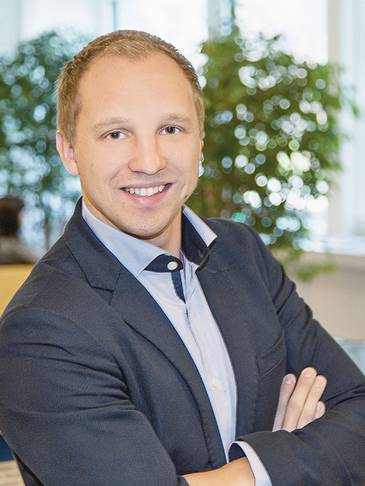
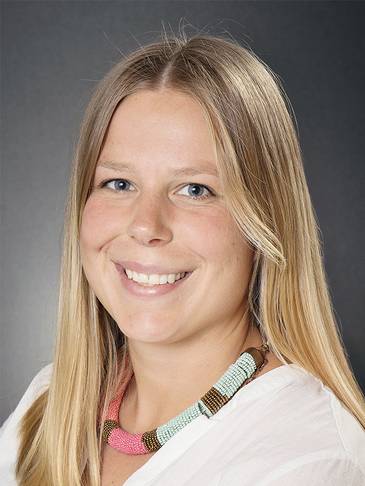
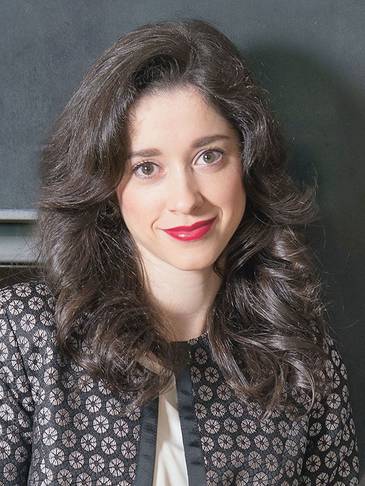
About the programme
The Master’s degree programme Tourism and Change prepares you for the exciting challenges of tomorrow's tourism by learning how to
- analyse change,
- manage change and
- design positive change.
As a graduate of the master’s degree programme Tourism and Change you will:
- have knowledge in business administration and tourism.
- be able to plan, lead, carry out and evaluate change projects.
- possess skills in analysing, managing and designing change processes.
- have combined the knowledge and skills to gain competences in entrepreneurship, innovation management and sustainability.
Explore in the following video how this Master's degree prepares you to thrive in the tourism industry.
Curriculum
To provide you with a comprehensive perspective on change in tourism, the Major Tourism and Change framework is organised into a critical analysis of change factors, an understanding of change processes in order to manage these and ways to create positive change.
Tourism and Change (mandatory modules – modules must be completed)
Analysing change
This set of modules combines change theory and diagnostic tools with an analysis of the main drivers of change in tourism. You will learn how to monitor and analyse the internal and external environments of tourism organisations, skills that are crucial for detecting early signs of change and for identifying opportunities and threats. Practical examples from tourism will focus on actions and outcomes.
Managing change
Tourism is experiencing a period of considerable change. The ability to successfully manage the changes affecting tourism is therefore crucial and a much-valued skill. Both practical and action-oriented, the modules will provide you with the tools to deal with the messy reality of change in tourism.
Designing change
Change emerges from complex, dynamic, iterative processes. But how can you create positive change? How are ideas developed into successful projects, products, services or new ways of doing things? How can you influence behaviours so that they benefit individuals and communities for the greater social good? We know that just providing information to the public does not really lead to systematic changes in behaviour. Otherwise no one would climb Uluru, take a cruise or fly short-haul. Learn about innovation and social marketing in tourism and acquire the ability to create positive change.
Business Administration (mandatory elective modules – you choose between specified modules)
Sustainability
In this module category, you will critically examine the role of businesses in society, the expectations of different stakeholders and the aspiration to deliver economically, socially and ecologically sustainable services.
Digital Transformation
Explore the impact of digital transformation on products, services and processes and become acquainted with digital business models such as online platforms, e-commerce, digital services, Web 2.0 and social media applications. Understand their revenue mechanics as well as how online marketing can support digital business. Analyse how companies develop and the tools that can be used to facilitate and control business development.
Organisational Leadership
You will learn how to manage your employees, discover the prerequisites for successful managers, obtain the skill to set and achieve common goals with your employees and learn how to adjust your management style to different situations. You will analyse how companies can attract talented employees, how they want to be treated and how they can be tied to the organisation.
Projects
Consultancy Project
The interaction between academic studies, research and industry is an important element of the master’s degree programme. In the consultancy project you will apply the knowledge acquired in your studies to real-life challenges. You will work in a small group for an external client, who will expect you to develop solutions relevant to their particular challenge.
Are you a company and would like to assign a consultancy project? You can find more information on this website.
Master's thesis
The master’s thesis allows you to choose a particular profile and thus to position yourself in the job market. A good choice of topic is critical for your job prospects. Write the master’s thesis with a tourism organisation or company, extend your network and improve your chances on the job market.
Are you a company and would like to assign a master's thesis? You can find more information on this website.
Elective module - Think outside the box and take a module from a different master’s degree programme, do a work placement, go on a field trip or design your own independent study. The choice is yours.
Research-led Teaching
The teaching at the University of Applied Sciences of the Grisons is research-led. This means that our lecturers, assistant lecturers and academic staff are also involved in a number of research and consultancy projects at the Institute for Tourism and Leisure. Because we collaborate closely with companies in the tourism and leisure industry, we are aware of the latest challenges facing the industry and are able to come up with ground-breaking solutions.
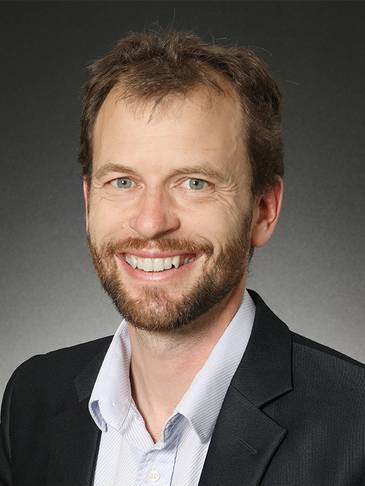
Admission requirements
You must meet the following requirements for admission to the Master of Science in Business Administration with Specialisation in Tourism and Change at the University of Applied Sciences of the Grisons (UAS Grisons). Please contact us if you have any questions about the admission requirements. We will be happy to help you.
Do you have one of the following diplomas?
- A bachelor's degree or equivalent diploma in tourism or other related subject from a university or university of applied sciences
Do you have a good knowledge of English and fulfil one of the following conditions?
- Certificate that proves you have a good knowledge of the English language
- Previous studies undertaken in English
- English is your mother tongue
Do you have knowledge of business administration?
- Basic knowledge of business administration is required. Should you not have prior knowledge of business administration at bachelor level, you will be able to make up for this prior to the start of the programme. We will provide all the literature you will need for your preparation.
Exceptions
You do not meet the aforementioned admission conditions for the study programme but can demonstrate that you have years of work experience and are in continual professional development? If so, you have the opportunity to apply under given circumstances. The Prorectorate and the Director of Studies decide on admissions on a case-by-case basis.
Transfers from other universities
To arrange a transfer from another university, university of applied sciences or PET college, you must contact the Director of Studies. Credits for modules at master's level previously completed at another university may be awarded in consultation with the Director of Studies prior to the start of the programme.
Organisational information
How much does it cost to undertake a master’s programme at the UAS Grisons? Where does the programme take place? How many ECTS credits will I receive? On what days will I have lectures and seminars? What degree will I be awarded after completing the programme?
Tuition fees
There is a one-off enrolment fee of CHF 300, which is deducted from the tuition fee for the first semester. If you do not take up the offer of a place on the programme, the enrolment fee will be forfeited.
The tuition fee per semester is CHF 960 for students with Swiss citizenship or the Principality of Liechtenstein citizenship. The tuition fee per semester for all other students is CHF 1,550.
Foreign students who have resided in Switzerland for at least two years before the start of their studies and who are financially independent and not in education may be able to benefit from the reduced tuition fee of CHF 960. The reduced tuition fee has to be reviewed and approved by the UAS Grisons on the basis of documentation provided by the students.
Students not from Switzerland, the Principality of Liechtenstein, the European Union or the European Free Trade Association are charged a deposit of CHF 3,000.
The tuition fees do not include teaching materials, (subject-specific) software, travel, food or accommodation in connection with field trips, multiday seminars and the bachelor thesis.
You will need a suitably powerful laptop (Windows recommended).
Grants
The universities of applied sciences are recognised by the Swiss Confederation and the cantons, which means students may be entitled to grants. For further information, please contact the grants department of the Department of Education for the canton in question.
Students from outside Switzerland can contact the relevant public funding institutions in their home country.
Place of study
The taught modules of the study programme are held in Chur, Switzerland. Individual events may take place in other locations and will be communicated in good time.
Semester abroad
An international exchange may prove an asset for your personal development. Analyse tourism in a different and international context and learn a new language at the same time. We maintain a network of universities worldwide and can help you organise a semester abroad with our partners. For more information see the International Office.
Duration of study programme
The master’s degree programme takes three semesters and can be extended individually up to eight semesters. Non-EU students with a student visa are not eligible for part-time studies. An academic year consists of two semesters lasting 14 weeks each and three examination weeks. In addition, examination weeks and single block weeks with no lectures take place which typically last from Monday to Friday.
You can find exact dates and details in the academic calendar.
Days of classes
The programme starts with an introductory, two-day kick-off event. The curriculum is structured into separate modules that may take place as weekly lessons or in a block of lessons, usually only on Thursdays, Fridays and Saturday mornings. Lessons are held between 9.45 a.m. and 4.45 p.m.
ECTS credits
The study and examination programme is governed by the Framework Regulations for the Study and Examination Regulationsas well as the Study and Examination Regulations specific to the study programme and the module table.
European Credit Transfer and Accumulation System (ECTS)
The European Credit Transfer and Accumulation System (ECTS) is a tool of the European Higher Education Area (EHEA) for making studies and courses more transparent and thus helping students to move between institutions of higer education. ECTS credits are awarded based on the student workload required to achieve the objectives of a course or a programme. ECTS credits are the basis for the recognition of course or programm achievements and diplomas between institutions of higher eduction.
An ECTS credit point corresponds to a student workload of 30 hours. The student workload includes the lectures but also time needed to pre- and postprocess the lectures, prepare exams and for self-studying. 60 credits a year are acquired in a full-time study course, which corresponds to a student workload of 1800 hours. At University of Applied Sciences of the Grisons a bachelor's degree course is comprised of 180 ECTS credits, a consecutive master's degree of 90 ECTS credits.
Study and examination regulations
You can find all the details in the Framework Regulations and the Study and Examination Regulations as well as the appendices document.
Assistance Measures
The University of Applied Sciences of the Grisons promotes equal opportunities and gender quality among its students. To this end, it breaks down cultural and structural barriers and supports its students in expressing their individuality. It implements legal principles of equality and prevents discrimination.
If you are living with a disability or chronic illness that makes studying difficult, you can apply for assistance measures. You can find more details on the website of Assistance Measures Office.
Application and advice
Application
If you would like to apply for a place on the programme, please fill out and submit the online application with the required documents.
You will then be invited for an interview with Prof. Dr Jan Mosedale, Director of Studies.
Visa and Residence Permit issues
Conditions for Non-EU/EFTA students
- Student requires an entry visa as well as a residence permit for Switzerland. The International Office initiates this process once the application fee and the tuition fee for the first semester has been received. The student is responsible for paying the costs for the entry visa and the residence permit.
- Student must provide a language diploma (IEL TS/TOEFL, etc.) for the visa application.
- Student must provide evidence of sufficient funds for living expenses in Switzerland (approximately CHF 2'000.00 per month) for the visa application.
- Student must have a sufficient health & accident insurance policy for Switzerland and personal liability insurance.
- After a period of 6 months living in Switzerland, students may work up to 15 hours per week during the semester and up to 100% during the semester holidays. The employer must apply for a work permit and the University of Applied Sciences of the Grisons must agree that the employment workload is manageable in addition to the workload of the study programme.
Conditions for EU/EFTA students
- Student requires a residence permit for Switzerland. The International Office applies for such permits on arrival in Switzerland. The student is responsible for paying for the residence permit.
- Student must have sufficient funds for covering living expenses in Switzerland (CHF 2000.00 per month).
- Student must provide a sufficient health & accident insurance policy for Switzerland and personal liability insurance.
- Student is currently permitted to work up to 15 hours per week. The employer must apply for a work permit and the University of Applied Sciences of the Grisons must agree that the employment workload is manageable in addition to the workload of the study programme.
For further information regarding the requirements for student visas, refer to website of the cantonal migration authorities (only available in German).
For general information concerning entry & residence to Switzerland please consult the website of the State Secretariat for Migration SEM.
Application deadline
The application deadline is 31 May of the year in which you start your studies. The study places will be allocated after an examination of your documents and an interview with the director of studies. Applications will still be considered after the application deadline, provided that study places are available.
Advice
Do you have any questions about the study programme? Would you like any advice, or are you still unsure? Do you have any administrative questions? We will be happy to help you.
Fachhochschule Graubünden
Comercialstrasse 22
7000 Chur
Switzerland
Phone +41 81 286 24 65
Mail master@clutterfhgr.ch
Director of Studies
Information and Advice
Administration and Admissions
Information events
Join an information event for the Master's degree Tourism and Change – we hope to see or talk to you soon! The presentation on the Master Tourism & Change will be held in English.







